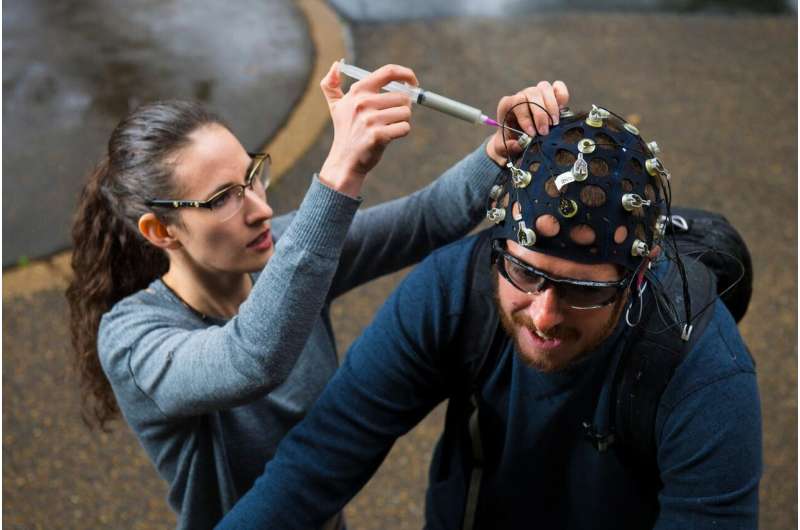Make some noise: How background noise affects brain activity

Have you ever found it difficult to focus on a task due to background noise? Scientists at the University of Alberta are studying just how these sounds impact our brain activity—and what that impact means for designing neurotechnology.
"Why do we prefer to do some tasks in quiet places and others with ambient noise? What is our brain doing to keep us from losing our focus every time we leave the peace and quiet of our homes?" said Joanna Scanlon, lead author of the study who conducted the work as a graduate student in the Department of Psychology. "It's important to understand how the brain processes tasks in different environments."
To begin exploring these questions, the scientists are establishing a baseline for how our brains respond as we complete tasks in different environments by changing background noises. The result? Any time there is background noise, our brain actively works to filter it out—with the largest effect for fluid, outdoor sounds like vehicle traffic.
"We were able to change brain activity during a cognitive task in a noticeable and reproducible way, simply by playing outdoor sounds in the background," said Scanlon, who conducted the study under the supervision of Kyle Mathewson, assistant professor in the Faculty of Science. "These findings show that our environment affects how we perceive the world around us—and means that much of what we know about the brain is oversimplified since it has primarily been researched in a laboratory setting."
The findings support an increased trend of taking psychology outside the lab, making use of new, mobile wearable electroencephalogram (EEG) technology to measure brain activity—something Mathewson's lab is focusing their research on.
"The goal of brain research is to ultimately help people in their daily lives and predict and prevent and treat illness," said Mathewson. "Almost all of what we currently know about the brain is from studies done in very boring, unrealistic settings in the lab. Perhaps people want a monitor to alert them when their attention is not working optimally or a device to help them remember things they see better. These devices will need to work outside in the real world, in our job sites, vehicles, and during all of our daily activities."
More information: Joanna E. M. Scanlon et al, The ecological cocktail party: Measuring brain activity during an auditory oddball task with background noise, Psychophysiology (2019). DOI: 10.1111/psyp.13435



















